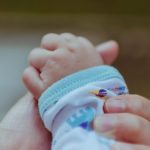
There is nothing lucky about a pandemic. All of us living through the present one can agree it’s frightening, upsetting, and increasingly surreal. Life as we know it has been severely disrupted and promises to remain so for a while.
On a purely personal level, people’s experiences vary. For those who love interaction and group activities, social distancing or sheltering in place feels terribly constricting. If you’re a homebody or an introvert, that constriction may be tempered with gratitude for the chance to “do you” with the world’s blessing. Still, for everyone, the financial implications of the world hitting the pause button are terrifying. As is the sudden fact that the commonest features of community life have become dangerous.
Whatever your feelings about the current scenario, we can all agree that being lucky now means staying healthy and strong. The good news is that the two most important determinants of your luck—your actions and your attitudes—are always in your control, and most especially in this situation. Luck in the time of coronavirus requires your conscious intention to 1) prevent the virus from entering your body and 2) strengthen your immune system.
Avoiding exposure is fairly straightforward: Wash your hands often, don’t touch your face, and stay home as much as possible. Our communities are making that last one easier with the closures of schools, restaurants, gyms, theaters, and even places of worship.
Information is readily available about boosting your immune system with food, supplements, rest, and exercise, yet there’s a critical element of immune health that’s often overlooked—the effect of stressful emotions.
In times like these, it’s natural to feel some fear or anxiety, but fear is not your friend in a pandemic (or any other crisis). If you let those stressful emotions predominate, they’ll weaken your immune system—increasing the odds that the calamity you’re so worried about will come to pass.
Fear puts you into fight or flight mode and activates your body’s stress response. That’s an appropriate reaction to immediate danger, like a tiger chasing you, but if the response persists over time, it wears down your resistance to disease.
On top of that, being afraid literally makes you stupid. Fear shuts down your higher brain functions, clouding your judgment and leading you to make more mistakes.
So, if you want to be luckier, you’ve got to learn to let go of fear and worry.
Fortunately, there are many proven techniques to help reduce your anxiety, including meditation, exercise, therapy—and breathing, which turns out to be one of the most effective ways to feel more fearless fast. Studies show that it takes only three long, slow deep breaths to activate the body’s parasympathetic response and begin to chase the “stress chemistry” out of your system.
So, the next time you feel fear overtaking you, try this 30-second fear-blaster:
- Start by putting your hand on your stomach.
- Tighten your stomach muscles and notice how that feels. Now release them.
- With your stomach relaxed, take a deep, slow breath in through your nose. Take 4 or 5 seconds to inhale fully.
- Now, keeping your stomach relaxed, exhale through your nose slowly for 4 or 5 seconds.
- Repeat two more times. Notice how much more grounded you feel.
Another helpful tool for mitigating fear and consciously increasing your luck is called Radical Gratitude, the practice of being grateful for your challenges and struggles as well as your gifts. Radical Gratitude does NOT involve relentless positivity, whitewashing your experiences, or stuffing your feelings. It’s quite the opposite. Instead, when faced with a negative situation, let yourself feel whatever comes up and then in the spirit of tremendously gentle inquiry, ask yourself, “Can I be grateful for this, too?” There is no “should” or obligation to feel grateful—just a curiosity to see what answers surface.
This invitation to consider the possibility that there could be something to be grateful for in difficulty automatically changes your perspective, allowing you to explore all aspects of the situation with less emotional charge. From this more open vantage point, it’s rare not to find at least one small aspect of your experience that could be considered positive. Even a small dose of authentic gratitude instantly relaxes the vice grip of fear and victim-hood and sets you on the path of more proactive thinking and action, which can’t help but lead to better luck.
Use these simple but powerful techniques as often as necessary. Because creating your own luck in the time of coronavirus starts with remaining centered and not making a difficult situation worse.
Carol Kline is a #1 New York Times bestselling author whose books include Happy for No Reason, Love for No Reason, five books in the Chicken Soup for the Soul series, and the upcoming Conscious Luck: Eight Secrets to Intentionally Change Your Fortune, co-authored with Gay Hendricks.


